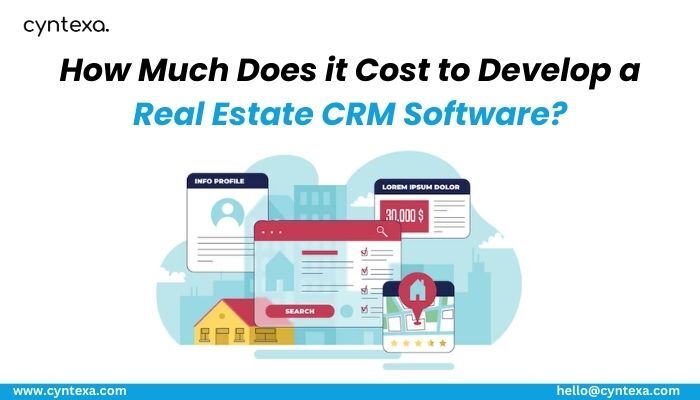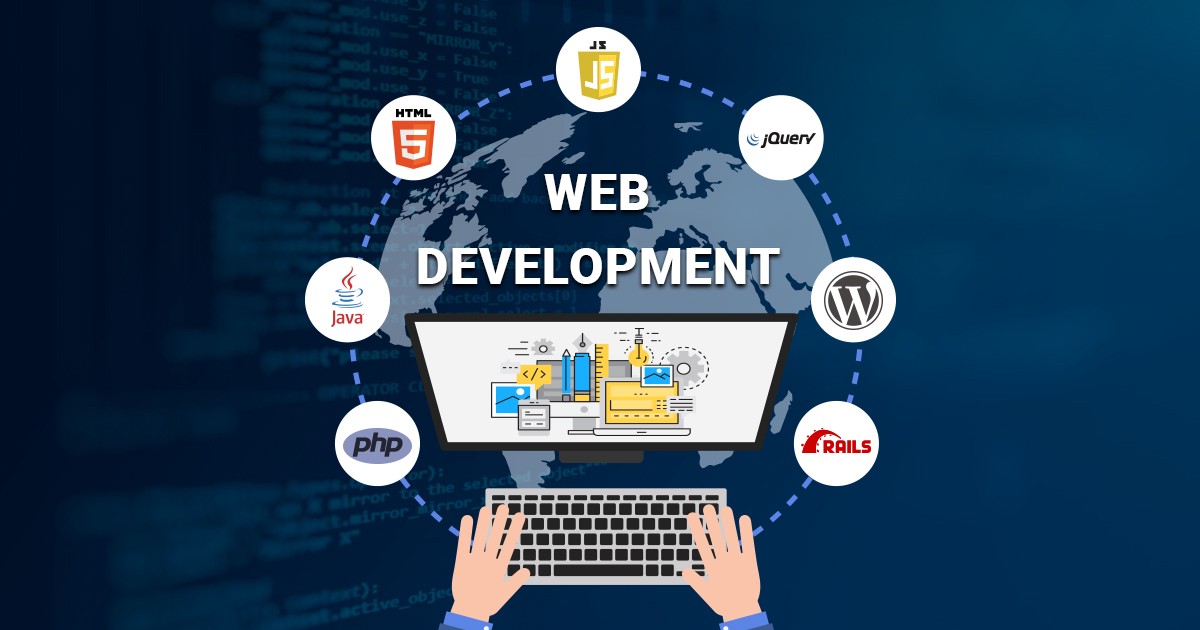The technological market is growing at a fast pace, developing the demand for the real estate industry to adapt to these technologies to thrive. For that, these industries should opt for the Customer Relationship Management (CRM) software tailored to the unique needs of this sector. But the question that often arises is, “How does a real estate CRM cost?”.
Whether you’re a real estate agency seeking a custom CRM or a tech enthusiast exploring the possibilities, understanding the intricacies of cost estimation is your first step toward a successful CRM project.
This guide will let you know the actual CRM cost and shed light on how you can calculate an estimated real estate CRM software cost without any help.
So, curious to know the process? Let’s get in touch till the end!
What is a CRM app for the real estate sector?
In the realm of real estate, CRM applications function much like other essential business management tools, including project management, invoicing, and time-tracking applications.
CRM software for the real estate sector is crucial for optimizing customer interactions and enhancing contact management. These specialized CRM solutions offer a comprehensive database of contacts, seamlessly shareable calendars, and scheduling functionalities among team members.
Additionally, they boast robust email marketing systems that enable the delivery of highly personalized messages to specific contact groups.
When it comes to selecting top-tier CRM apps tailored for the real estate industry, standout options include Dealertrack, Intuit QuickBooks for Sales, and Pipedrive. Professionals trust these platforms to streamline real estate operations and elevate customer engagement.
What is the typical cost to build a CRM app?
Determining the actual developmental real estate CRM pricing would be challenging as it varies on different factors, including business size, strength, requirements, needs, and budget. However, on average, real state CRM cost of development ranges between $20,000-$40,000.
An actual state CRM development cost is low if you need a minimum viable product because it costs you less than the app with intended and extended functionality. Developing an MVP version of a product is recommended when you want to gather feedback from early users before full fledged development.
For instance, Salesforce real estate CRM pricing includes 4 plans:
Essentials – $25/user/month (paid annually)
Professional – $80/user/month (paid annually)
Enterprise – $165/user/month (paid annually)
Unlimited – $330/user/month (paid annually)
How much time is required to develop real estate CRM software?
The time required to develop a real estate CRM software depends on factors like project complexity, features and functionality you need, and the technology stack you plan to use. Typically, the development of a CRM app takes around 467 hours to complete. However, this timeframe can vary significantly, ranging from as few as 200 hours to as many as 933 hours. The precise duration hinges mainly on the complexity of your app.
In general, you can expect a longer development timeline if you demand intricate custom designs, specialized features, or unique release platforms that deviate from standard practices. Therefore, it is important to identify and define your requirements precisely as this will have a direct influence on the time and resources that would be needed to craft a CRM solution directly aligned with your business objectives.
Risk and challenges of developing CRM Software
Before developing a real estate app, skilled Salesforce developers design the complete Software Development Lifecycle of an app for the real estate sector. But still, because of its convoluted architecture, developers undergo a challenging process and face some common risks associated with creating CRM software. These challenges and risks include:
Lack of research
When you dig deeper, it’s easier to understand your CRM requirements for your business. With improper research and needs, you couldn’t make the right decision. There might be a possibility that you can pick from the existing CRM, which may be different from your business requirements.
Communication gaps between managers and sales reps
When sales managers need to keep pace with selling their services on a regular basis, they may be disconnected from the latest trends and deal requirements. With such a challenge, you might develop or choose CRM that creates many challenges on your way instead of being an excellent solution for your business.
Poorly defined metrics
With proper research, you may understand the importance of valuable insights for business growth. Whereas improper requirements can make it challenging for you to make an informed decision or to measure the success of your CRM system.
Going over budget
Passing your forecasted budget can be a massive headache. You can avoid this by ensuring you are aware of all the facts about your new CRM before you make a decision. Additionally, instead of buying the exclusive or premium plans, it’s best to opt for the customized plans. So, you will pay for the services your business requires.
Inadequate forecasting
Imagine your business is booming, and your CRM is doing the job—for now. But here’s the hitch: without accurate growth planning, that CRM could become a roadblock as your business expands. Don’t allow it to slow your progress, ensure your CRM can scale alongside your growth. Strategize for success, and let your CRM propel your business toward a brighter future.
Unclear goals and objectives
Having lack of clear and well-defined goals and objectives can significantly influence the success of your CRM initiative. When you have clear and concise vision, it serves as a roadmap that guides your team towards achieving the desired outcomes. On the contrary, vague plans can lead to confusion among employees, and ultimately, the outcome of the developed application can differ from what you expected earlier.
Conclusion
Salesforce real estate CRM software is not merely a financial investment but decides the future of your business. As we’ve explored the factors influencing costs, remember that while price matters, it’s equally important to focus on the value that a well-crafted CRM can bring to your operations.
So, take the leap, plan thoughtfully, and collaborate with experienced developers who understand your unique needs. By doing so, you’re not just calculating costs; you’re setting the stage for unparalleled efficiency, enhanced customer relationships, and exponential business growth.





